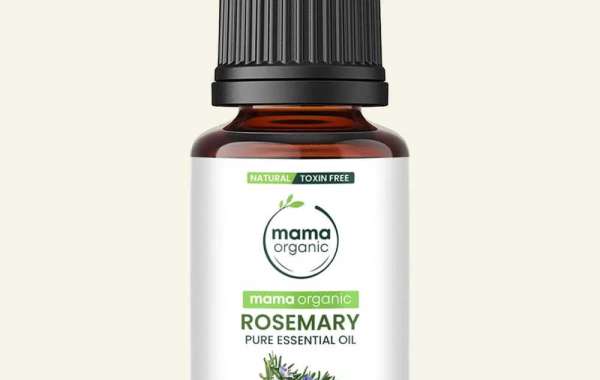Rosemary oil, derived from the aromatic herb Rosmarinus officinalis, has been prized for centuries for its myriad health and wellness benefits. From promoting hair growth to enhancing mental clarity, this essential oil offers a wide range of therapeutic properties. In this article, we delve into the origins, extraction process, benefits, and applications of rosemary oil.
History and Origins
Ancient Uses
Rosemary Oil has a rich history dating back to ancient civilizations such as the Egyptians, Greeks, and Romans, who valued it for its medicinal and culinary properties.
Modern Cultivation
Today, rosemary is cultivated worldwide, with major producers including Spain, France, and Tunisia, where it is grown for both culinary and medicinal purposes.
Extraction Process
Steam Distillation
The most common method of extracting rosemary oil is through steam distillation, which involves passing steam through rosemary leaves to extract the aromatic compounds.
Cold Pressing
Cold pressing is another method used to extract rosemary oil from the herb's fresh leaves, resulting in a high-quality oil rich in nutrients and antioxidants.
Chemical Composition
Key Compounds
Rosemary oil contains various bioactive compounds, including cineole, camphor, and pinene, which contribute to its therapeutic properties.
Therapeutic Properties
These compounds impart rosemary oil with antimicrobial, anti-inflammatory, and antioxidant properties, making it beneficial for both physical and mental well-being.
Benefits for Hair
Promotes Hair Growth
Rosemary oil stimulates blood circulation to the scalp, promoting hair follicle health and encouraging hair growth.
Improves Scalp Health
The antimicrobial properties of rosemary oil help to combat dandruff and soothe irritated scalp conditions, such as itching and flakiness.
Prevents Hair Loss
Regular application of rosemary oil can help prevent hair loss by strengthening the hair shaft and reducing breakage.
Benefits for Skin
Antimicrobial Properties
Rosemary oil exhibits antimicrobial activity against bacteria and fungi, making it effective for treating acne, eczema, and other skin infections.
Antioxidant Effects
The antioxidants found in rosemary oil https://www.mamaorganic.pk/products/rosemary-essential-oil-20ml help protect the skin from oxidative stress and environmental damage, reducing the signs of aging and promoting a youthful complexion.
Reduces Acne and Blemishes
Rosemary oil's anti-inflammatory properties help to reduce redness and swelling associated with acne, while its antimicrobial effects combat acne-causing bacteria.
Aromatherapy and Mental Health
Stress Relief
Inhaling the aroma of rosemary oil can help alleviate stress and anxiety, promoting relaxation and a sense of calm.
Mood Enhancement
The refreshing scent of rosemary oil uplifts the mood and promotes feelings of positivity and well-being.
Mental Clarity
Rosemary oil is believed to enhance cognitive function and mental clarity, making it a popular choice for studying or concentration.
Other Uses and Applications
Insect Repellent
The strong scent of rosemary oil acts as a natural insect repellent, helping to ward off mosquitoes, flies, and other pests.
Flavoring Agent
Rosemary oil is commonly used as a flavoring agent in culinary applications, adding a distinctive herbal aroma and flavor to dishes.
Household Cleaner
Due to its antimicrobial properties, rosemary oil can be added to homemade cleaning solutions to disinfect surfaces and freshen the air.
Safety Precautions and Considerations
Dilution Guidelines
Rosemary oil should be diluted with a carrier oil, such as coconut or jojoba oil, before applying to the skin to avoid irritation or sensitivity.
Patch Testing
Before using rosemary oil topically, perform a patch test on a small area of skin to check for any allergic reactions or irritation.
Avoiding Internal Use
Rosemary oil should not be ingested, as it can be toxic in large quantities and may cause adverse effects.
Where to Purchase Rosemary Oil
Online Retailers
Rosemary oil is readily available from online retailers specializing in essential oils and aromatherapy products.
Local Health Stores
Many health food stores and wellness shops carry rosemary oil in their inventory, offering a selection of brands and formulations.
Quality Considerations
Organic Certification
Look for rosemary oil that is certified organic to ensure it has been produced without synthetic pesticides or chemicals.
Pure and Undiluted
Choose rosemary oil that is pure and undiluted, free from additives or fillers that may diminish its therapeutic properties.
Storage and Shelf Life
Proper Storage Conditions
Store rosemary oil in a cool, dark place away from direct sunlight and heat to preserve its potency and freshness.
Shelf Life Expectancy
When stored properly, rosemary oil has a shelf life of approximately one to two years, although its aroma and efficacy may diminish over time.
Conclusion
Rrosemary oil is a versatile essential oil https://www.a1a9u.com/ with numerous benefits for both physical and mental well-being. From promoting hair growth and improving skin health to enhancing mood and mental clarity, this aromatic oil offers a myriad of therapeutic properties. Whether used topically, aromatically, or as a flavoring agent, rosemary oil remains a valuable addition to any holistic health and wellness routine.
FAQs
Is rosemary oil safe for sensitive skin?
- While rosemary oil is generally well-tolerated, individuals with sensitive skin should dilute it with a carrier oil and perform a patch test before use.
Can rosemary oil be used during pregnancy?
- Pregnant women should consult with their healthcare provider before using rosemary oil, as it may stimulate menstruation and potentially pose risks during pregnancy.
Is rosemary oil safe for children?
- Rosemary oil should be used with caution around children, as it may cause skin irritation or respiratory issues if not properly diluted or if used in excessive amounts.
Can rosemary oil be used to treat headaches?
- Some people find relief from headaches by inhaling the aroma of rosemary oil or applying a diluted solution to the temples, although individual responses may vary.
Is rosemary oil suitable for aromatherapy diffusers?
- Yes, rosemary oil can be added to aromatherapy diffusers to purify the air, promote relaxation, and enhance mental clarity.







